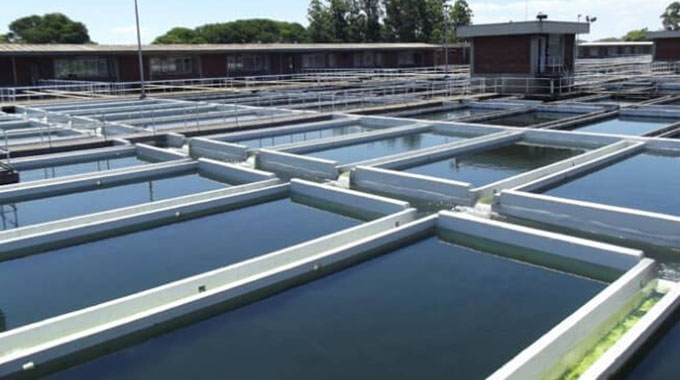Water woes: Middlemen worsening residents’ plight

Beaven Dhliwayo Features Writer
Local authorities should be more serious when it comes to service delivery, and desist from contracting middlemen in the procurement of goods, including water treatment chemicals.
City of Harare is a big organisation and there is nothing that can deter it from dealing directly with manufactures either locally or globally, unless the deal may be of benefit to some individuals in the municipality. Harare Municipality relies on middlemen to procure chemicals such as chlorine in neighbouring South Africa, raising suspicion of inflated prices at the expense of ratepayers.
The local authority is a big organisation that can easily get clearance from the Procurement Regulatory Authority of Zimbabwe (PRAZ) to procure chemicals outside the country directly from suppliers. Middlemen are not straightforward in their dealings.
The term “middleman” is an informal word for an intermediary in a transaction or process chain. A middleman will facilitate interaction between parties, typically for a commission or fee.
Some critics say that businesses and customers should try to “cut out the middleman” by dealing directly with each other, avoiding any increased costs or commissions. Council should know that they are just fattening the pockets of middlemen, who without overheads, are making huge profits, while residents in Harare are struggling with prolonged water shortages.
Middlemen do not contribute any taxes to any authority as they are always under the “desk kind of” transactions. They also make money by selling the product for more than its purchase price.
This difference is called the mark-up or cost the buyer ends up paying, hence City of Harare should strive to eliminate its traditional seller of chemicals and save money. Manufactures these days are more willing to sell directly to consumers of their products, so that they get feedback to continue boosting their brands.
Rather than paying middlemen to procure chemicals, council should now put its house in order and process the necessary paperwork so that it operates independently. Eliminating middlemen usually creates win-win outcomes for the seller and buyer from a monetary perspective.
One wonders why the authority keeps clinging on to middlemen if there are no gains by the parties responsible for the procurement of water treatment chemicals. Council should bear with residents knowing that their dealings with middlemen have increased the cost of development and services.
The power of the middlemen has led to overpricing of projects, poor service delivery and products, thinner margins, reduced budgets for research and development, losses to producers, expensive products, reduced investments in products and remuneration challenges for the sector.
It has created a cocktail of disasters and has distorted economic fundamentals. It is killing the economy as a water crisis for citizens affects all other areas of development. There should be a probe to find out who are these middlemen because they continuously win major contracts, yet they do not have any clue on how to undertake such projects; only for them to subcontract the real service providers at a premium.
In the predicament which council put itself in, the middlemen are always winning regardless of whether they have the necessary business acumen or not.
The verve and aggression at which the middlemen tend to maintain their “cut” (margins) is a bit disturbing, and is solely responsible for the city’s shutdown of Morton Jaffray water treatment plant due to shortages of imported chemicals.
They dictate the terms and conditions, demanding huge amounts before the chemicals are supplied, and sometimes they lie that the chemicals are stuck at Beitbridge Border Post, further worsening the situation back home. On the other hand, City of Harare should maximise on revenue collection.
The problems are deeply rooted in council itself and there is need to cleanse its internal structures. One cannot solely blame the water woes on the manipulative well-connected middlemen overlooking those offering themselves on a silver platter for manipulation.
City council also provides water to the dormitory towns of Chitungwiza, Norton, Epworth and Ruwa. It is now up to the city fathers to maximise revenue collection from these towns, which they will use to buy chemicals to treat water for residents going forward.
For instance, Chitungwiza Municipality’s debt to Harare City Council for its water supplies has ballooned to over $11 million from about $5,2 million in the last four years. Until, the authority puts its house in order, residents will continue to suffer to get clean water while being exposed to communicable diseases such as diarrhoea and typhoid.









Comments